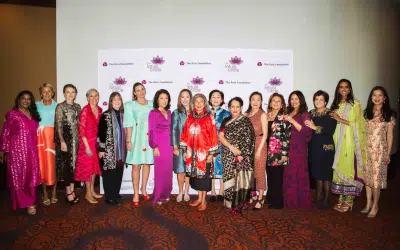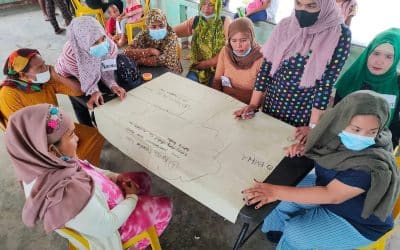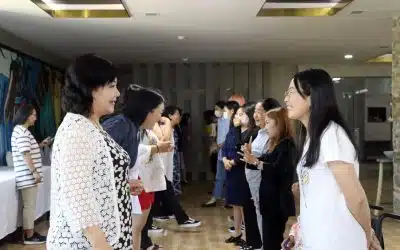USAID CSM Amplifies Women, Youth, and Marginalized Identity Struggles in Nepal
Program Year: 2024
In Nepal, our USAID Civil Society and Media (CSM) Program connected underprivileged communities in Lumbini Province with senior journalists from Kathmandu and Lumbini. The meeting focused on critical topics, including sociocultural and economic issues, identity, water scarcity, landlessness, education, and child marriage. Around 12 journalists from different media platforms met with marginalized and ultra-marginalized communities like Natuwa and Madheshi Dalit (Harijan, Pasi, Chamar, and Kori). The difficulties and urgent problems these communities face were evident throughout the engagement.
One significant issue that emerged was the identity crisis faced by the Natuwa community. Despite their traditional involvement in snake charming, begging, and honey hunting activities, the National Dalit Commission classified them as Dalit. Anil Natuwa, a resident of Rupandehi, said, “Despite accusations of our fight being solely for monthly allowances, we emphasize that our battle is for our genuine identity. Being enlisted as Dalit makes us untouchable, a label we reject.”
Advocating as a bystander, Shova Sharma, a senior journalist from Setopati, said she witnessed their plight and saw how the Natuwa people are deprived of their identity, fundamental rights, and dignity. She noted challenges in accessing clean water and education and an absence in land ownership, further compounding struggles.
Other visiting journalists shared their experiences and perspectives on the issues of social exclusion and discrimination faced by different marginalized groups in Madhesh Province and Lumbini Province. Their discussions underscored the nuanced dynamics, highlighting that certain groups are more vulnerable and disadvantaged even within the marginalized category. For example, the Natuwa and Tharu communities live in the same squatter settlements but face different levels of marginalization. Journalists revealed that while individuals from the Tharu community lack land ownership, they can find some work as laborers on others’ land. In contrast, the Natuwa community faces exclusion from this option, leaving them with little to no means of earning a livelihood and sending their children to school.
While the Madheshi Dalit and Natuwa groups can access education, its quality and their ability to buy school materials is a significant concern. Journalists noted that Natuwa people exchanged their grains for school materials and that local schools have unqualified teachers, leading to poor learning outcomes. From identity struggles to a lack of access to essential resources and quality education, these interactions highlight the need for holistic support and attention to address the complex challenges Women, Youth, and Marginalized (WYM) communities face in Nepal.
With funding from USAID through the Civil Society and Media – Standing Together and Advancing in New Directions (CSM-STAND) Leader with Associate (LWA) award, the Foundation is implementing a five-year program in Lumbini and Madhesh Province of Nepal. The program’s overarching goal is to support independent civil society and media led by and for Women, Youth, and Marginalized (WYM) communities through innovative interventions, challenge funds, and grants designed in co-creation workshops.
The Latest Across Asia
News
April 25, 2024
Program Snapshot
April 18, 2024
News
April 17, 2024

2024 Lotus Leadership Awards
The Lotus Leadership Awards recognize contributions towards gender equality in Asia and the Pacific







